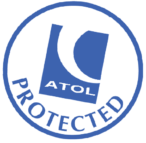Capital: San Salvador
Time zone: GMT – 6
Telephone services: Country Code: 503
Outgoing Code: 00
Emergency telephone numbers: All services – 123 / 121
Tourist information: Instituto Salvadoreño de Turismo (ISTU), Calle Rubén Dario 619, San Salvador, El Salvador Tel: 222 0960 or 222 8000 Fax: 222 1208.
Passport information: Valid passport required by all. Return Ticket Required. Requirements may change at short notice. Contact the embassy before departure.
Visa information: Required by all except: Nationals of Austria, Belgium, Chile, Colombia, Finland, Germany, Italy, Liechtenstein, Luxembourg, Norway, Panama, Spain, Sweden, Switzerland, and the UK for stays of up to 90 days. Nationals of Costa Rica, Guatemala, Honduras, and Nicaragua, for stays of up to 30 days. Nationals of the USA, Mexico and Israel require a tourist card allowing them stays not exceeding 90 days.
Health information: Polio, Typhoid: Vaccination Required.
Malaria: Exists all year throughout the country in the Vivax variety. Risk is greater in low-lying areas
Yellow Fever: Vaccination certificates are required by travellers over 6 months of age coming from infected areas.
Other Health Risks: Rabies, Cholera – (treatment resistant strain), Dengue Fever, Visceral leishmaniasis, Mucocutaneous leishmanisis.
Food & drink: Water is untreated and not safe to drink. Avoid dairy products as they are not pasteurised. Fruit and vegetables should be peeled before consumption.
Currency: Colón Esc (colloquially Peso) = 100 centavos.
MasterCard, Visa and Amex are widely accepted. Travellers cheques are accepted in banks and hotels on production of a passport. US dollar cheques are preferred. Pounds stirling cannot be changed into local currency.
ATM availability: Over 20 locations.
Cost of living: The main hotels are in the capital. Prices fluctuate, depending on festivals and national events.
Languages: Spanish. English is also widely spoken.
Weather: Hot subtropical climate. Rainy season is May – Oct. The upland areas are cooler.
Electricity: 110 Volts AC, 60 Hz
Post: 7 days.
Transport: ROADS: Approx. 1/3 of roads are suitable for all weather conditions. DOCUMENTATION: AN IDP or national driving licence is required. RAIL: Links main cities. BUS: A good service exists between major towns. TAXI: Are plentiful but are not metered so agree fare in advance.
Special information: El Salvador portrays a more stable political climate than for many years, however the infrastructure remains fragile with rival factions contesting territorial supremacy. Travellers should still contact their embassies for current developments. Tourists should exercise great caution. Travel to El Salvador is not recommended unless it is essential. Youths with guns are a growing problem on the streets of towns and cities. Seek advice as to which areas are safe. There is extreme political unrest and a rising crime rate. PHOTOGRAPHY: Avoid using cameras around military areas.

